This post is a reflection on Acts 3:1-11
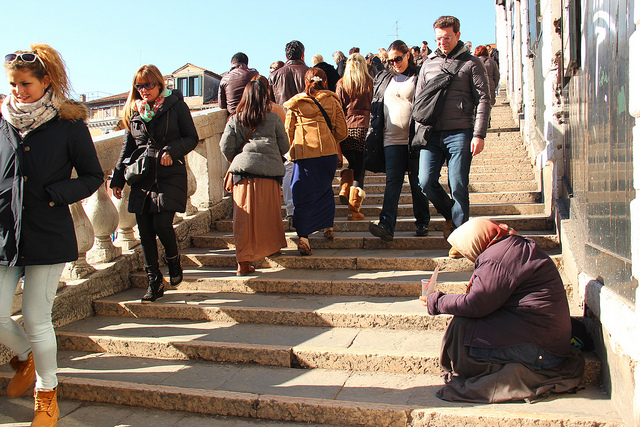
By Flickr user holacomovai – https://www.flickr.com/photos/holacomovai/8690837710/
Jesus’ disciples, as they continued his mission of revealing God’s kingdom, encountered many of the poor and disabled. There’s the story of Peter and John who encounter a crippled man outside the temple begging for alms. The scripture says that they “looked intently at him.” – They made eye contact with the man and said, “Look at us.” It’s tempting to move along in the story to see how they responded to the man’s request for alms, but if we freeze our Ignatian contemplation here we can see that this is the response. Peter and John’s response is not to immediately give the man money or cure him, but to establish a relationship with him—through eye contact.
Yes, Peter and John don’t give him money; they instead restore his health so he’s able to walk. And while this act restores his dignity, their making eye contact with him is probably their most powerful act of giving dignity to one whom most passersby likely chose to ignore. How often do we choose to ignore the poor or the disabled? We’re afraid that looking at them somehow makes us gawkers. When was the last time you made eye contact with an “outcast”? When was the last time your schedule was more important than saying hello?
Making eye contact with another makes us vulnerable because it means we must—even if for a brief moment—enter into relationship with that person. Eye contact shifts our gawking to acknowledging another’s existence.
Peter and John invited the man they encountered into the temple. And the man “clung” to them. The disciples did not boast about their healing act. Instead, they chose to remain in friendship with him and invite him to church.
The other day a homeless man found an area outside our building to put his things down. At one point he went off for a bit and left a note, “Be back in 30 minutes.” As humorous as that is, I can imagine Jesus seeing that note and returning 30 minutes later to share lunch with that man. “How important does he think he is?” we might laugh as we see his note, yet for Jesus, that man is very important because he’s a child of God. He’s got inherent value and dignity.
The Catholic teaching of having a preferential option for the poor means simply, becoming friends with them. We may not have silver or gold to give the poor, but we do have the free gift of offering them dignity, by making eye contact with them, smiling, and saying “Good morning.” And perhaps some of us would be as bold as Christ and come back later to share our lunch with them.
Related posts:
Listen to an audio version of this post…

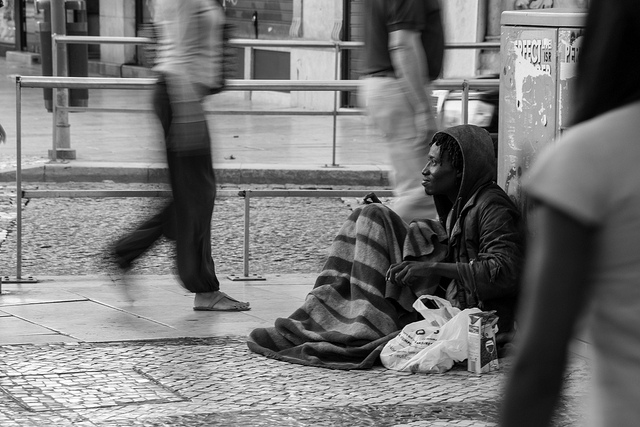



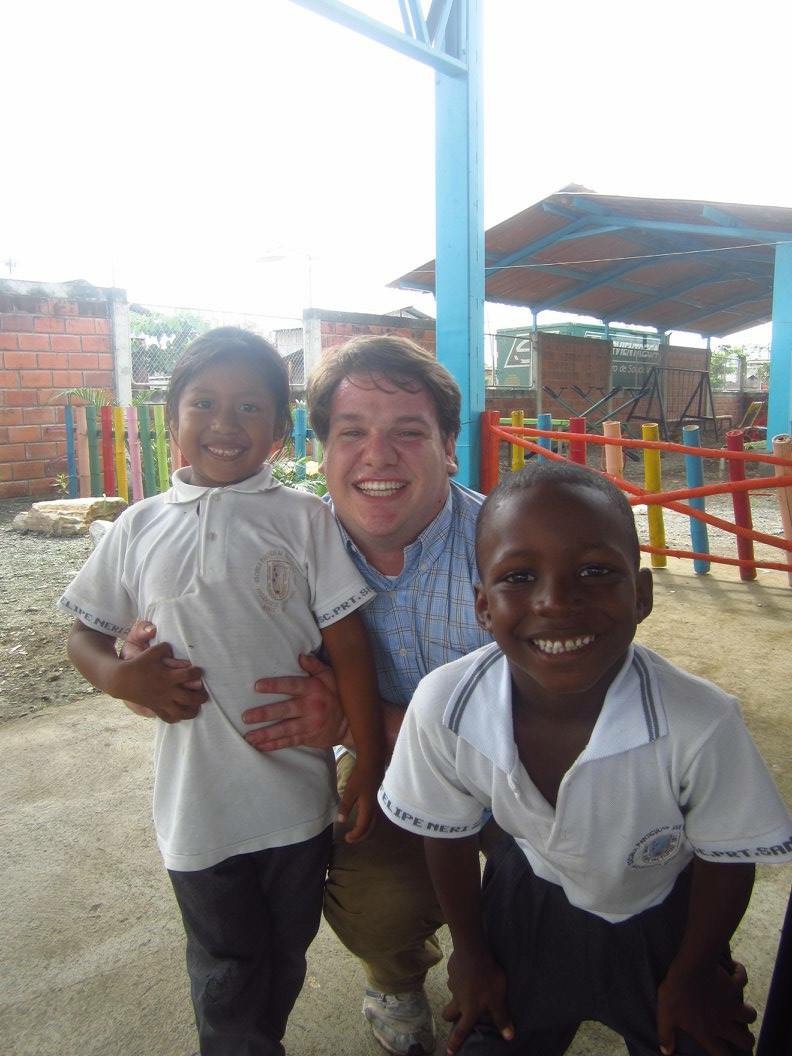

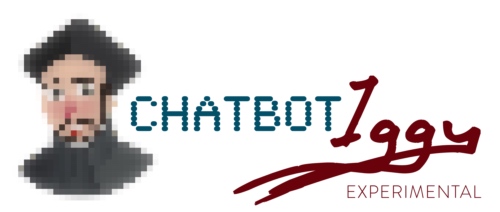
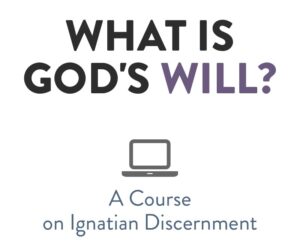
Excellent as always!
“The gift of dignity” – yes, perfect.
Agree! Amen. 🙂